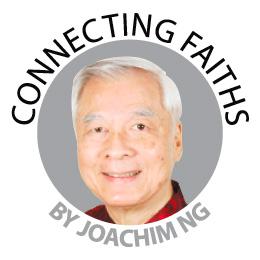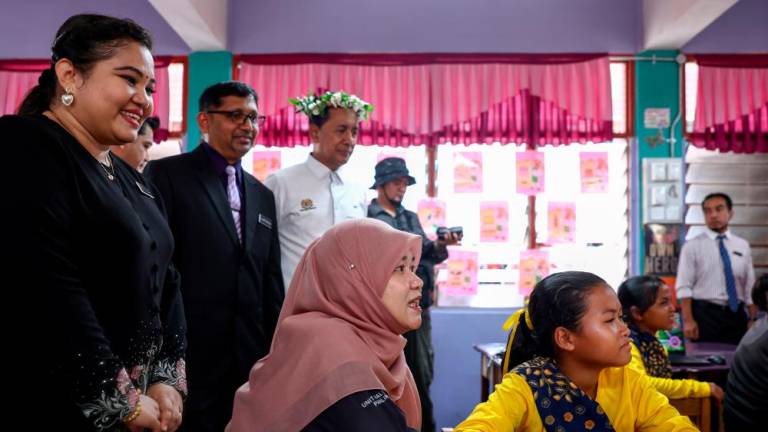DURING the time of the saviours and up to just 100 years ago, most people couldn’t live beyond 50. A host of infectious diseases, respiratory and non-respiratory, as well as non-communicable diseases including nutritional deficiencies, took lives to the grave early.
In 1900, only one in five persons was able to celebrate his 51st birthday, and only one in 10 was still alive at 60.
To find anyone aged 65 and above, a census taker would have to search the countryside and not the cities.
Have you ever pondered how most founders of religion, unless they were put to death, managed to live long lives relative to those deprived times? To cite just a few examples: the Buddha was 80 when he gave his final sermon; Confucius passed away at 72 and Guru Nanak at 70.
Their secret was to live in nature, and this is also the neglected remedy for Covid-19.
All saviours are known to have spent time sojourning in the forests, or in caves, or waterfall areas.
The coronavirus is like previous zoonotic killers of history in that it is a fatal byproduct of urbanisation.
When humans urbanise, two consequences emerge: wildlife destruction and crowded living.
The effect of wildlife destruction is to spark a leap of viruses from animals to humans.
The effect of crowded living is to spread viruses rapidly in urban populations via chain transmissions.
Crowds make infectious diseases far more prevalent in cities than the countryside.
Epidemiologists know that, even with the introduction of vaccines next year, sooner or later another pandemic will occur and if we are unlucky it may be far more virulent than Covid-19.
Some have warned that most of the world’s governments are both woefully under-prepared and unwilling to start making preparations for the next devastating hit.
Why is living in nature the saviours’ remedy?
The answer is that far from the urban crowd you build immunity through inhaling fresh air, bathing in sunlight, eating fresh organic foods, calming the mind, and strengthening your connectivity to the earth.
It is the path to God through nature.
Malaysia doesn’t promote this remedy, and it explains why Covid-19 cases are surging one year after the first appearance of the virus.
At the start, when the Movement Control Order was introduced, joggers in the park were arrested and fined.
Countries with low numbers of infection such as Australia (with only half of Malaysia’s total number of cases) did just the opposite: they encouraged residents to exercise in the park.
That’s how they kept numbers low.
Vitamin D is a reputed Covid buster, and lots of this vitamin cascade down with the sun.
As Malaysia has regiments of uniformed personnel, it is so easy to organise residents in the affected Conditional Movement Control Order zones into troops and march them to the community parks for exercise under strict standard operating procedures (SOPs). With stronger immunity, there will be a steady reduction in cases.
A more serious oversight is the laxity in allowing foreign workers to continue living in crowded dormitories – the very condition that will breed infection.
At the start of the year, all dormitories should have been placed under surveillance. This would require constructing additional houses using cheap modular systems to thin out the numbers of dwellers per sq ft of space.
Failure to do so has led to the emergence of a large Covid cluster in Kuala Lumpur known as the Damanlela Construction Site Cluster, totalling 1,132 cases as of Nov 16.
To address the worsening situation, law enforcers should place all hostels rooming security guards, cleaners, construction and factory workers, gardeners, and students under watch.
Other violators include the many restaurants that ignore SOPs by failing to insist on temperature checks and letting their customers join small tables to form a crowd. Law enforcers should have been deployed to check every restaurant daily and force violators to close for three days as penalty.
Do shopping mall concourses and shopfront corridors have crowds?
As long as people keep moving and maintain physical distancing, there is no crowd. Only when they converge in a shop or restaurant is there a danger of crowd building.
This is where the SOP of limiting the numbers inside at any one time is very important.
Shopping complexes, as popular hangout places, can simulate living in nature by devoting sizeable open spaces to the cultivation of trees and flower plants for shoppers to refresh themselves and build immunity.
Petaling Jaya’s One Utama is the best example with its ground-floor jungle trees and a rooftop secret garden of exotic plants. One Utama has blazed a nature trail for all malls to follow.
Aren’t public parks better?
Unfortunately, several are mosquito infested due to poor maintenance and some are intermittently closed.
For jogging in clean surroundings, a good choice for the Klang Valley public is Desa Park City’s open spaces.
The writer champions interfaith harmony. Comments: letters@thesundaily.com















